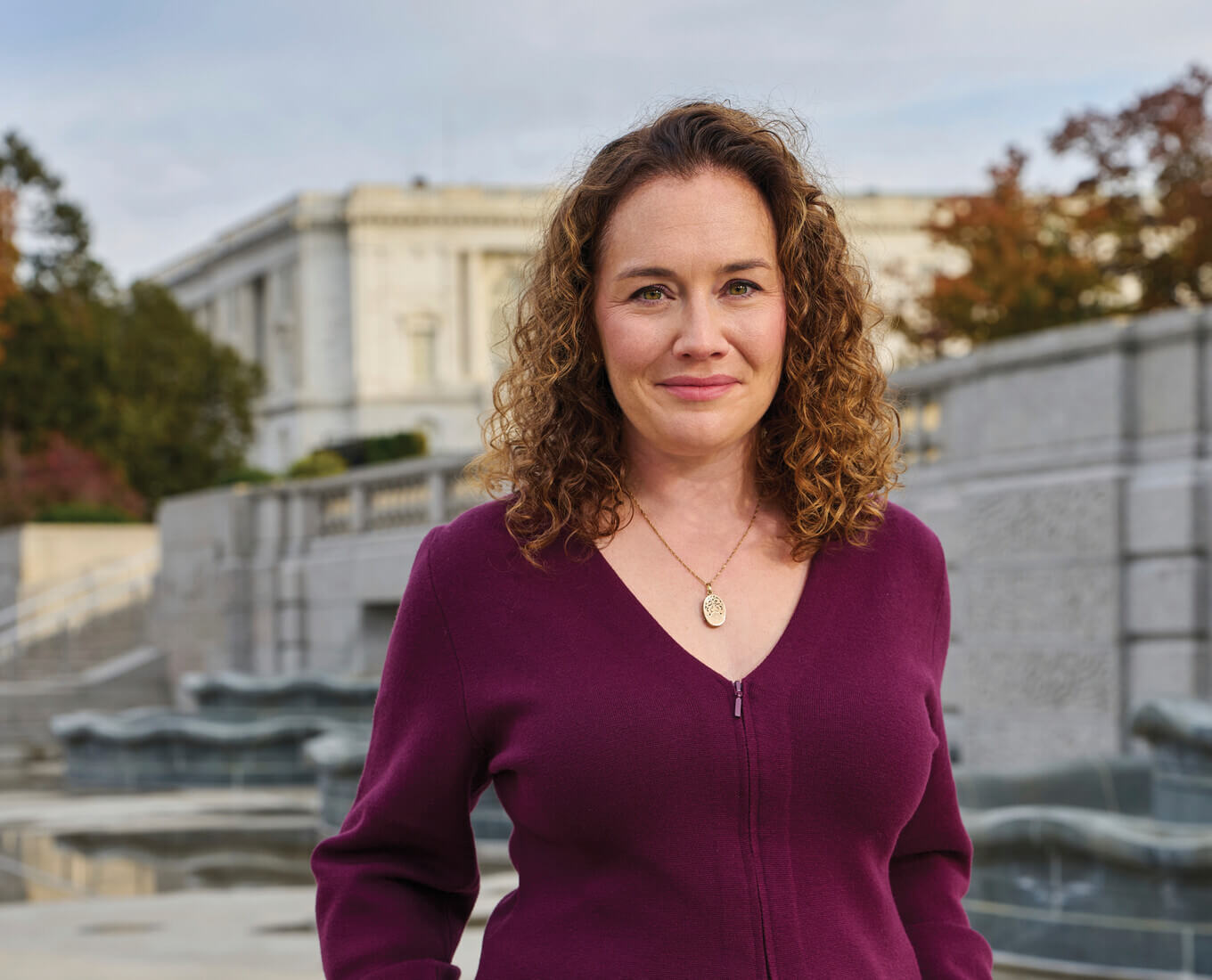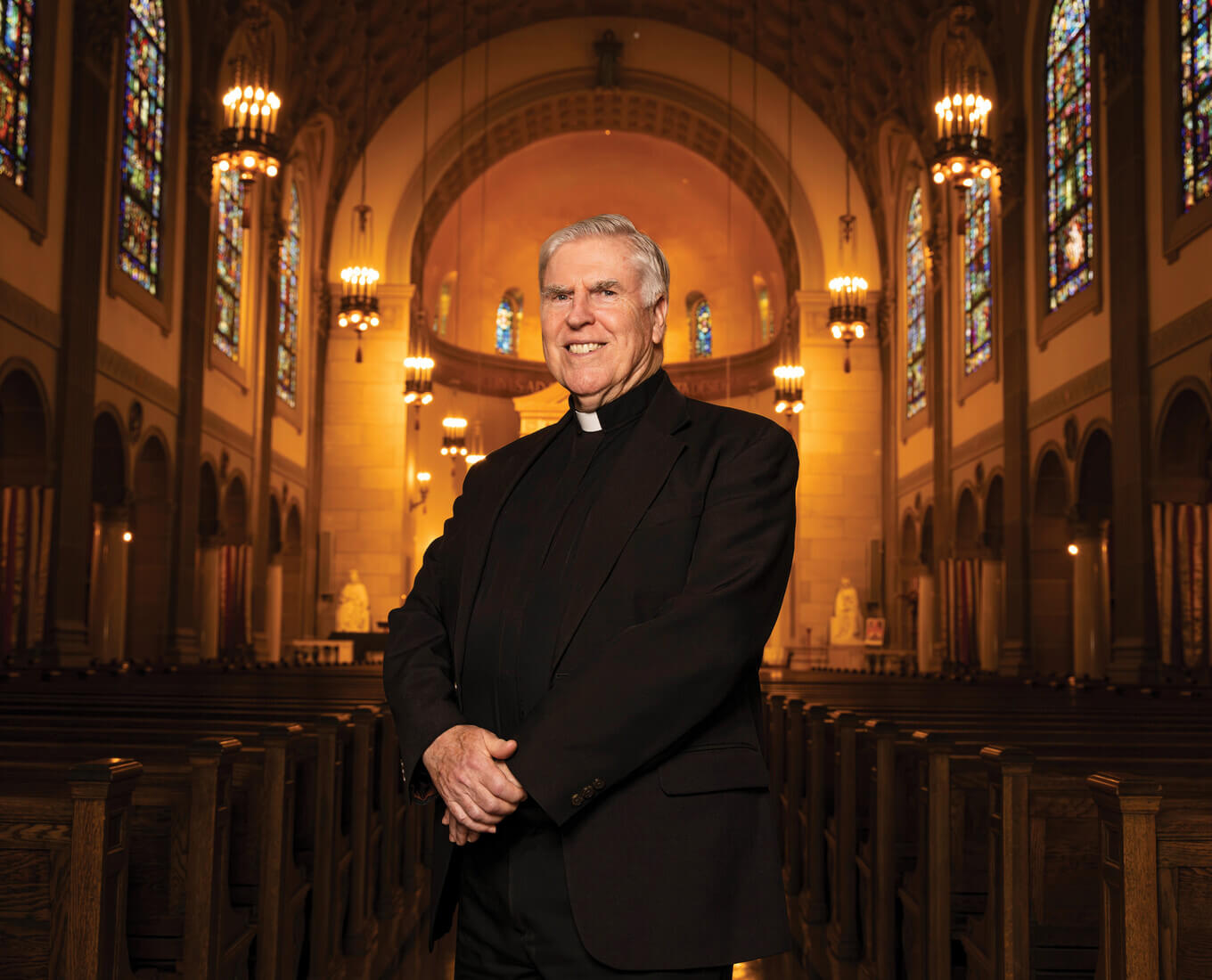
Many students first learn about HeLa cells in a science course. These human cells were the first to grow indefinitely in a laboratory setting, which is why they're commonly referred to as "immortal." The cell line has been used for decades in major medical advances, including the polio vaccine and AIDS research.
But in today's Theological Perspectives on Medical Ethics class, students are discussing Henrietta Lacks, the Black woman who unknowingly contributed these cells to researchers during a biopsy in 1951, shortly before she died of cancer.
Mary M. Doyle Roche '90, associate professor and chair of the religious studies department, includes Lacks' story as part of the course's module on racism. "It gives us a vivid picture into thinking about racism and the way in which it is sustained and exacerbated in the health care system," she says.
To prepare for today's session, students read articles by Black scholars and watched the film "The Immortal Life of Henrietta Lacks," based on the book of the same name. The class discusses issues of patient privacy, consent and health care access, as well as who has benefited from Lacks' cells and her story — all in the context of ongoing racism, white privilege and white supremacy. "Every issue that we talk about, we have to raise those questions," Roche says.
She emphasizes that whether students work in a lab with human cells or in finance with spreadsheets, it's always important to remember there is a person on the other side.
The six-week summer course, held over Zoom, is condensed from the semester-long version Roche has taught since 2006. Over time, she has expanded the syllabus to focus not only on clinical dilemmas, but also on public health and health care policy.
Roche approaches ethical issues primarily through the lens of Christian ethics and Catholic moral theology, while inviting perspectives from other faith traditions. "I want all students to have resources from the theological tradition that can challenge injustices present in our health care system," she says.
Topics such as mental health, end-of-life care and the opioid epidemic frame discussions. Most recently, Roche incorporated study of the coronavirus pandemic, giving students a space to process the events unfolding around them as they tackled ethical questions and examined past outbreaks of disease.
Many students who enroll in the course are considering careers in health care. "I try to build in units that might help those students discern the kind of physicians or health care professionals they want to be," Roche says.
One such student is Isabella Giaquinta '23, who is majoring in mathematics and health studies and minoring in statistics. "As a student who aspires to be [a health care decision-maker] someday, it only made sense for me to take Professor Roche's course this summer — to view health care issues through the lens of Catholic social teaching and learn to transmute my academic diligence into social action," she says.
Psychology major Catie Flynn '23 is strongly considering a career in the medical field: "I have learned about the complex decision-making over treatments that comes along with a diagnosis, injustices in the health care system, how stigma can prevent patients from seeking treatment, and so much more."
Throughout the course, Roche notes the importance of always asking how a decision will affect people who are the most vulnerable. And, she encourages her students to challenge whether an existing approach is truly effective or whether it's simply accepted because it's currently working for those with power and privilege.
As part of the course, Roche and her students wrote their own class oath, inspired by the modern Hippocratic Oath and the College's Mission Statement.
"The message I hope students can take from this is that they have a role to play in ensuring health care as a common good for all people," Roche says. "There are things we have committed to in the College's mission, and I think if we have taken that mission seriously, it can also shape the way we approach lots of issues in life, medicine and health care."
Course Catalog
RELS 230: Theological Perspectives on Medical Ethics
Professor: Mary M. Doyle Roche '90
Department: Religious Studies
Description: This course examines important developments in contemporary medical and health care ethics, primarily through the lens of Christian moral traditions. Engaging experiences of marginalized and vulnerable groups as part of their study, students consider topics like health care relationships, treatment decisions and health and human rights. The course also covers challenges presented by COVID-19. As a final project, students develop an action plan for participating in and advancing health care as a common good.
Meeting Times: Monday, Tuesday, Thursday from 11 a.m.-12:15 p.m.
Classroom: Zoom
Required Reading: "Catholic Bioethics and Social Justice: The Praxis of US Healthcare in a Globalized World"
Written by Meredith Fidrocki for the Fall 2020 issue of Holy Cross Magazine.
About Holy Cross Magazine
Holy Cross Magazine (HCM) is the quarterly alumni publication of the College of the Holy Cross. The award-winning publication is mailed to alumni and friends of the College and includes intriguing profiles, make-you-think features, alumni news, exclusive photos and more. Visit magazine.holycross.edu/about to contact HCM, submit alumni class notes, milestones, or letters to the editor.

